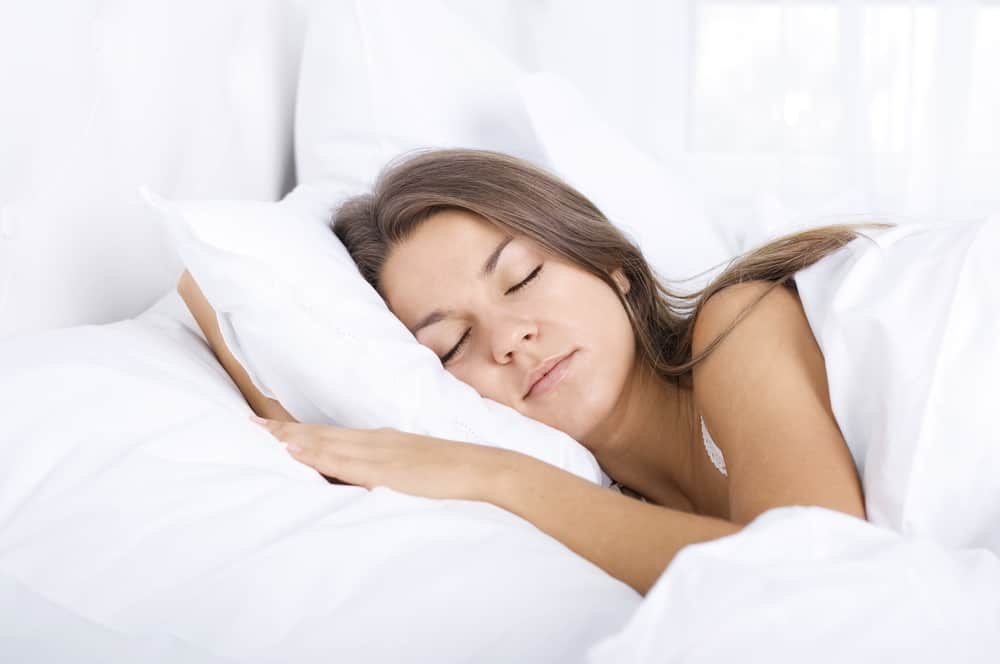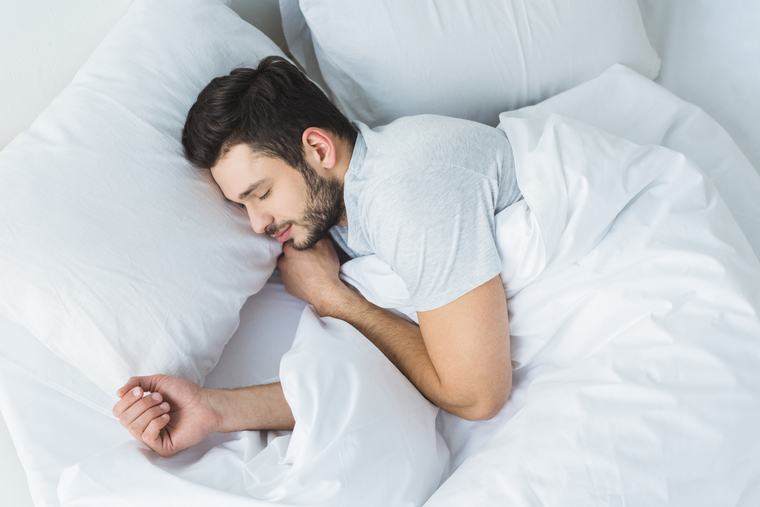You’re doing everything right – eating well, exercising regularly, taking your vitamins – yet you still wake up feeling like you’ve been hit by a truck. You drag yourself through the day powered by caffeine and sheer willpower, promising yourself you’ll get better sleep tonight. But then bedtime rolls around, and your mind starts racing about tomorrow’s presentation, that text you forgot to send, or why you said that awkward thing in the meeting three weeks ago.
Sound familiar? You’re not alone in this struggle. Despite sleep being one of the most critical factors for physical recovery, mental performance, and overall health, most of us treat it as an afterthought – something that happens after we’ve checked off everything else on our endless to-do lists.
The truth is, quality sleep isn’t a luxury or a sign of laziness. It’s the foundation that makes everything else in your life work better. When you consistently get restorative sleep, your workouts become more effective, your immune system strengthens, your mood stabilizes, and your cognitive function sharpens. Poor sleep, on the other hand, sabotages all your other health efforts.
Why Sleep Hygiene Matters More Than You Think
Sleep hygiene isn’t about being obsessive or rigid – it’s about creating conditions that naturally support your body’s sleep-wake cycle. Think of it as setting up your environment and habits to work with your biology rather than against it.
Your body follows a natural circadian rhythm, an internal clock that regulates when you feel alert and when you feel sleepy. Modern life constantly disrupts this rhythm with artificial light, irregular schedules, and stimulating activities right up until bedtime. Good sleep hygiene helps restore this natural pattern, making it easier to fall asleep, stay asleep, and wake up feeling refreshed.
The impact extends far beyond just feeling rested. During deep sleep, your body repairs muscle tissue, consolidates memories, and releases growth hormone. Your brain literally cleans itself, clearing out toxins that accumulate during waking hours. Skip this crucial recovery time consistently, and you’ll notice the effects in your energy levels, mood, immune function, and even your ability to maintain a healthy weight.
Creating Your Sleep-Friendly Environment
Your bedroom should be a sanctuary designed for one purpose: quality sleep. This means treating it differently from the rest of your living space. Small changes to your sleep environment can have a dramatic impact on your sleep quality.
Temperature Control: Your body naturally drops its core temperature as you prepare for sleep. A cool room between 65-68°F supports this process and helps you fall asleep faster. If you tend to run hot or cold, invest in breathable bedding or layers you can adjust throughout the night.
Darkness is Key: Even small amounts of light can interfere with melatonin production, your body’s natural sleep hormone. Blackout curtains, an eye mask, or simply covering LED lights from electronics can make a significant difference. If you need to use the bathroom at night, try a small red light instead of bright overhead lighting, as red light is less disruptive to your circadian rhythm.
Minimize Noise Disruptions: While you might think you sleep through noise, your brain continues processing sounds even during sleep, which can fragment your rest without you realizing it. Earplugs, a white noise machine, or even a simple fan can help create consistent, soothing background sound that masks disruptive noises.
Invest in Comfort: Your mattress and pillows directly impact your sleep quality. If you wake up with aches and pains or find yourself tossing and turning frequently, it might be time to evaluate your sleep setup. You spend roughly a third of your life in bed – it’s worth investing in quality bedding that supports your body properly.

Building a Pre-Sleep Routine That Actually Works
The hour before bed sets the stage for your entire night’s sleep. Instead of scrolling through your phone or catching up on work emails, create a routine that signals to your body and mind that it’s time to wind down.
The Digital Sunset: The blue light emitted by screens interferes with melatonin production, making it harder to feel sleepy. Aim to put away phones, tablets, and laptops at least one hour before bedtime. If you must use devices, blue light blocking glasses or night mode settings can help minimize the impact.
Progressive Relaxation: Start your wind-down routine 30-60 minutes before you want to be asleep. This might include dimming lights throughout your home, taking a warm bath or shower, doing gentle stretches, or reading a physical book. The key is consistency – your body will learn to recognize these cues as preparation for sleep.
Mind Clearing Techniques: If racing thoughts keep you awake, try a “brain dump” earlier in the evening. Write down tomorrow’s tasks, concerns, or anything on your mind. This simple practice can help prevent your bed from becoming a place where you problem-solve instead of rest.
Timing Your Day for Better Sleep
What you do during the day significantly impacts how well you sleep at night. Your sleep quality is influenced by your entire 24-hour cycle, not just the hours you spend in bed.
Morning Light Exposure: Getting natural sunlight within the first hour of waking helps regulate your circadian rhythm and improves your ability to fall asleep at night. Even on cloudy days, outdoor light is significantly brighter than indoor lighting. If possible, take your morning coffee outside or position yourself near a window during breakfast.
Strategic Caffeine Timing: Caffeine has a half-life of about 6 hours, meaning half of it is still in your system six hours after consumption. If you’re having trouble falling asleep, consider moving your last caffeinated drink earlier in the day. Some people are more sensitive than others, so pay attention to how afternoon caffeine affects your sleep.
Exercise Smart: Regular physical activity improves sleep quality and helps you fall asleep faster. However, vigorous exercise within 3-4 hours of bedtime can be stimulating and make it harder to wind down. Morning or afternoon workouts tend to support better sleep patterns.
Meal Timing Matters: Large meals close to bedtime can interfere with sleep as your body works to digest food. Aim to finish eating at least 2-3 hours before bed. If you’re genuinely hungry later in the evening, opt for a light snack that combines protein and complex carbohydrates, like a small handful of nuts or a piece of whole grain toast with almond butter.
Managing Sleep Disruptors
Even with perfect sleep hygiene, life sometimes throws curveballs that can disrupt your rest. Having strategies to handle these situations prevents occasional sleep issues from becoming chronic problems.
Dealing with Stress and Anxiety: When your mind is racing, traditional relaxation techniques like deep breathing or progressive muscle relaxation can help activate your body’s relaxation response. The 4-7-8 breathing technique – inhaling for 4 counts, holding for 7, and exhaling for 8 – is particularly effective for calming an overactive mind.
Weekend Sleep Patterns: While it’s tempting to sleep in on weekends to “catch up,” dramatic changes in your sleep schedule can disrupt your circadian rhythm and make Monday mornings even harder. Try to keep your wake-up time within an hour of your weekday schedule, even on weekends.
Travel and Shift Work: If your schedule varies due to travel or shift work, focus on the sleep hygiene elements you can control. Maintain your pre-sleep routine regardless of the time, use blackout curtains or an eye mask to create darkness, and consider melatonin supplements under guidance from a healthcare provider to help reset your internal clock.

The Power of Consistency
The most important aspect of good sleep hygiene isn’t any single technique – it’s consistency. Your body thrives on routine and predictability. Going to bed and waking up at roughly the same time every day, even on weekends, helps regulate your internal clock and makes quality sleep feel more natural and effortless.
This doesn’t mean you need to be rigid or perfect. Life happens, and occasionally staying up late for a special event or sleeping in on a lazy Sunday won’t derail your progress. The goal is to maintain consistent patterns most of the time, treating good sleep habits as non-negotiables rather than optional luxuries.
Start with one or two changes that feel manageable and build from there. Maybe it’s putting your phone in another room at night, or setting a consistent bedtime routine. Small, sustainable changes compound over time and create lasting improvements in your sleep quality.
Beyond the Basics
Once you’ve mastered the fundamentals, there are additional strategies that can further optimize your sleep recovery and energy levels.
Sleep Position and Breathing: Your sleep position affects both comfort and breathing quality during the night. Side sleeping often reduces snoring and sleep apnea symptoms, while back sleeping with proper pillow support can help maintain spinal alignment. If you’re a stomach sleeper experiencing neck or back pain, gradually transitioning to side sleeping might improve your sleep quality.
Seasonal Adjustments: Your sleep needs and patterns may change with the seasons. During winter months with less natural light, you might benefit from a light therapy box in the morning. Summer’s longer days might require more attention to blackout curtains and cooling strategies.
Tracking Without Obsessing: While sleep tracking devices can provide useful insights, avoid becoming overly focused on the numbers. How you feel upon waking and throughout the day is often a better indicator of sleep quality than what your device reports. Use technology as a tool for awareness, not anxiety.
Making Sleep a Priority
Quality sleep isn’t selfish – it’s strategic. When you’re well-rested, you show up better for your work, your relationships, and your health goals. You make better decisions, have more patience, and possess the energy to tackle challenges that would otherwise feel overwhelming.
The irony is that many people sacrifice sleep to get more done, but poor sleep actually makes you less productive and more prone to mistakes. Investing in better sleep habits pays dividends in every area of your life.
Remember, improving your sleep hygiene is a process, not a destination. Some nights will be better than others, and that’s completely normal. The goal is to create sustainable habits that support consistent, restorative sleep most of the time. Your body, mind, and everyone around you will thank you for making sleep the priority it deserves to be.
